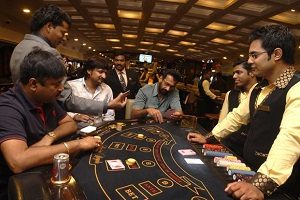India is at a crossroads with regard to gaming. The country is currently operating under a 150-year-old gambling law. This antiquated law doesn’t account for the challenges of online gameplay and sports betting. In addition, the states, rather than the national government, regulate the gambling in the country. The state court of Delhi recently declared that online gaming is illegal. The country is again facing several challenges to the gambling industry.
India’s Gaming Problems
 Currently, India’s national law dates to 1868. It allows for games of skill, such as horse racing. However, it doesn’t allow for games of chance, such as poker. The current regulations on gaming allow the states to make decisions about gambling. This means that, in some states in India, such as Goa, there are casinos, lotteries, and sportsbooks. In the states along the India-Pakistan border, there are no casinos and no legal gambling of any kind. Islam forbids it.
Currently, India’s national law dates to 1868. It allows for games of skill, such as horse racing. However, it doesn’t allow for games of chance, such as poker. The current regulations on gaming allow the states to make decisions about gambling. This means that, in some states in India, such as Goa, there are casinos, lotteries, and sportsbooks. In the states along the India-Pakistan border, there are no casinos and no legal gambling of any kind. Islam forbids it.
While each state regulates its own forms of gambling, there is a problem. There is no regulation for online gaming in the entire country. There have been efforts to regulate it, however. India has tried for several years to regulate online gaming, mobile gaming, and sportsbooks. However, the country has not been able to pass a new gaming law, which leaves the courts to make the decisions.
The Delhi Court Ruling
The Delhi state, which encompasses New Delhi, has a population of 20 million. The state is in the northern part of the country. It is home to many tourist attractions from the Mughal Empire. While the area is nearly all urban, the court in Delhi has issued fairly conservative rulings.
The case before the court was whether online casinos that allowed players to play with “real” money were illegal. It didn’t matter whether they played games of chance or games of skill, according to the gaming laws. The court ruled the only way online casinos were legal would be if the gamers didn’t win any real money. Otherwise, they were illegal. The court ruling will continue the argument between the states. Some want to legalize online gaming to take in some of the revenue. And, others think that online gaming should be illegal.
The Notion of Outsiders
Part of the issue with online gaming is many of the online websites are outside the country. This includes the popular applications as well. Increasingly, India has looked to promote technology from within the country as opposed to outside it. Many Indian leaders have called for a ban on all non-Indian companies that operate applications and websites in the country. The leaders liken the popularity of non-Indian companies to another form of colonialism.
For example, one of the most popular applications in India is WhatsApp, which Facebook runs. Nearly all phones in India run on Android, which is part of Google. Hundreds of millions of Indians are on social media, including Facebook, Twitter, Instagram, and Snapchat. India is looking to rid itself of the applications to both promote its own technologies and to become more India-centered. India may be trying to promote its own technology.
However, the fact remains it doesn’t have a comprehensive gaming policy. And, as a result, it is not taking advantage of millions of dollars of gaming revenue from online casinos. India has a lot of social welfare programs that could benefit from an increase in revenue. In addition, there are areas of India that could use the money for infrastructure. India needs to develop a comprehensive gambling legislation program to begin to see online revenue in its coffers.
Disclaimer: All images are copyright to their respective owners and are used by USA Online Casino for informational purposes only.












